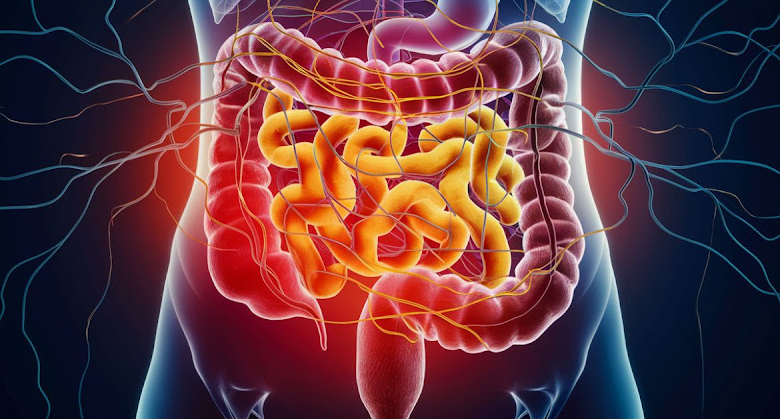Why Does Visceral Hypersensitivity Affect The Gut?

Visceral hypersensitivity refers to a heightened sensitivity to pain or discomfort located in internal organs. It often affects the gut, leading to heightened pain responses from normal digestive processes.
Visceral hypersensitivity can turn everyday gut sensations into painful experiences. Severe discomfort from normal digestion is unimaginable. The knowledge about how visceral hypersensitivity influences the gut health can lead to effective treatments that can enhance the quality of life among those suffering from it.
Because of visceral hypersensitivity, the gut becomes painful, tense, and bloated. Various factors like alterations in the nervous system and gut-brain axis cause higher perception of body sensations, especially pain. Also, there are influences from stressor states or inflammation processes. Awareness of these elements is essential for visceral hyperpathia management and treatment.
Mechanisms of Visceral Hypersensitivity
The changes within the gut-brain communication system, which cause visceral hypersensitivity, are a significant factor. The enteric nervous system has increased sensitivity in this instance as it controls the gastrointestinal tract.
In this respect, neurotransmitters and receptors in the gut are crucial components of this process. The influence of stress and anxiety may worsen these mechanisms making them more difficult to treat. Analyzing these factors will facilitate the development of successful therapeutic approaches.
Symptoms and Clinical Manifestations

Individuals suffering from visceral hypersensitivity generally undergo recurrent and harsh abdominal discomfort. The signs may be interspersed in a normal digestive process.
Cramping, bloating, and abnormal bowel habits are commonplace. In most cases, these conditions affect one’s daily life and quality of life. Therefore, accurate diagnosis is fundamental to addressing these reactions.
Pathophysiology
The relationship between visceral hypersensitivity and pain perception in the gut is a complex one that includes inflammation, immune responses, genetics, and environment.
Taking into account all these changes, such a process may result in an increased reaction to ordinary gut stimuli. By examining them, researchers can discover improved ways of treating patients suffering from this condition.
Diagnostic Approaches

To diagnose visceral hypersensitivity, thorough patient history, and laboratory tests should be done. Doctors frequently use questionnaires to examine the symptoms.
Physical testing as well as imaging examinations help eliminate other diseases. However, specialized tests including gut motility studies might be applied. Precise diagnosis is crucial in the management of any ailment.
Management and Treatment
There are several methods to deal with visceral hypersensitivity. Visceral pain and inflammation can be reduced using medications. In addition, some dietary modifications in lifestyle changes are also imperative.
Psychological therapies including cognitive-behavioral therapy may help control stress-related symptoms. Increased effectiveness of a global treatment plan results in better outcomes for patients.
Research and Future Directions

Visceral hypersensitivity mechanisms are examined in cutting-edge research today. Finding new and efficient therapies is the aim of the studies. The researchers investigate the role of genetics and microbiome. There might be personalized therapies in future studies. It is important to keep on with the research for better patient care.
Frequently Asked Questions FAQS
What is visceral hypersensitivity?
Vicarious hypersensitivity implies augmented pain perception from inner organs mostly related to the intestines.
How does visceral hypersensitivity affect the gut?
This results in abnormally high tension levels when it comes to regular body functions of breaking down food.
What causes visceral hypersensitivity?
Inflammations, stressors, and changes in the gut-brain axis may be the culprits behind it.
What are the common symptoms of visceral hypersensitivity?
Usual symptoms are abdominal ache, swelling inside the stomach, and unpredictable disposal of body waste.
How is visceral hypersensitivity diagnosed?
Diagnosis might be made by subjecting a person to medical examinations, checking their medical records, or conducting particular research into the bowels’ microorganisms.
Conclusion
The digestive system is made hypersensitive in a normal way by visceral hypersensitivity. Due to alterations in the gut-brain axis, nervous system, and inflammatory reactions, this condition arises. Additionally, stress and anxiety can worsen the symptoms. To design effective therapies, it is vital to comprehend these mechanisms.
A mix of drugs that relieve the pain, changes in what to eat, and mind-healing processes are part of how to handle agitation in the belly. For appropriate care and to enhance results for patients, exactly diagnosing is vital. The discovery of new and improved methods of treatment is among the objectives of current research. The general well-being of individuals who suffer from this can be improved by knowing the cause of and dealing with visceral hypersensitivity.



